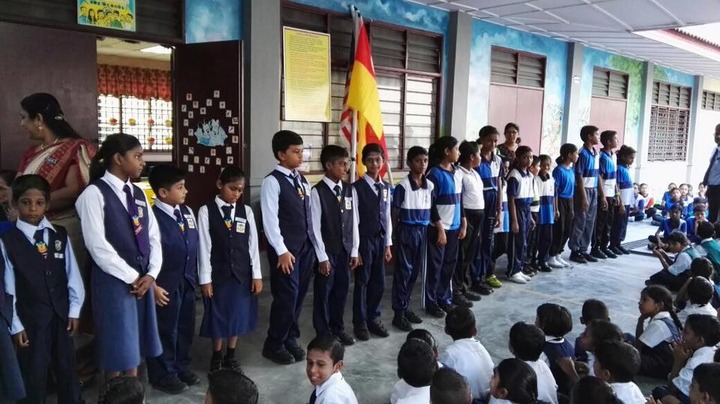Vernacular Schools Are Constitutional: Win For Freedom Of Choice In Education
The Federal Court has decided to uphold the constitutionality of vernacular schools.

Subscribe to our FREE Newsletter, or Telegram and WhatsApp channels for the latest stories and updates.
Chinese and Tamil schools are not going away anytime soon. Despite a recent suit, the Federal Court has decided to uphold the constitutionality of vernacular schools (otherwise known as national-type schools).
During the hearing yesterday, the court dismissed an application by two non-governmental organisations (NGOs) to seek leave to appeal against an earlier ruling that the use of Chinese and Tamil languages in these schools is constitutional.

It was also ruled that the applicants failed to cross the threshold required under Section 96 of the Courts of Judicature Act 1964.
Justice Datuk Mary Lin Thiam Suan, who led the three-member panel, delivered the majority decision which was agreed to by Federal Court judge Datuk Rhodzariah Bujang.
Federal Court judge Datuk Abdul Karim Abdul Jalil was the only one who dissented, wanting to allow the NGO parties – Islamic Education Development Council (Mappin) and the Confederation of Malaysian Writers Association (Gapena) to pursue their appeal.
But since Mappin and Gapena failed to obtain leave for appeal, the Federal Court’s and the Court of Appeal’s decision on vernacular schools still stand.
“This a win for freedom of choice in education,’ said MCA publicity bureau chairman Chan Quin Er. She also said Malaysians can be assured that their children’s right to mother tongue education is protected.

Background on the case
The case, according to Chan, began in 2019 and has gone through two High Courts and three Courts of Appeal. Both Mappin and Gapena had submitted eight questions – six constitutional and two legal ones to the court.
The constitutional question was whether the medium of instruction in national-type Chinese and Tamil schools, established under Sections 2,17, and 28 of the Education Act, should be considered official, thereby falling under the purview of Article 152(1) of the Federal Constitution mandating the use of the national language for official purposes.
Representing Mappim and Gapena, lawyer Haniff Khatri Abdulla highlighted the public interest angle, stating, “The apex court should hear and determine the issue decided by the High Court and Court of Appeal.”
Support for Mappim and Gapena’s stance came from three respondents: the Malaysian Chinese Language Council, Persatuan Tamil Neri Malaysia, and the Confederation of Former Tamil School Pupils.

Senior federal counsel Liew Horng Bin, representing the government and the education minister, contended that the applicants did not sufficiently establish the case’s public importance or warrant for an appeal, asserting, “I have instructions from my clients to oppose the application as they have a desire to preserve and maintain vernacular schools.”
An additional eight respondents, including MCA, Gerakan, MIC, and Sekolah Menengah Persendirian Chong Hwa Kuala Lumpur, also opposed the application.
In delivering the unanimous decision of a three-member Court of Appeal panel on Nov 23, Justice Azizul Azmi Adnan underscored that vernacular schools have long been recognized within the legislative framework of the education system even preceding Malaya’s independence and the 1957 constitution.
He clarified that a vernacular school does not constitute a public authority, therefore, employing a non-Malay medium of instruction does not run afoul of the law.
Share your thoughts with us via TRP’s Facebook, Twitter, Instagram, or Threads.





